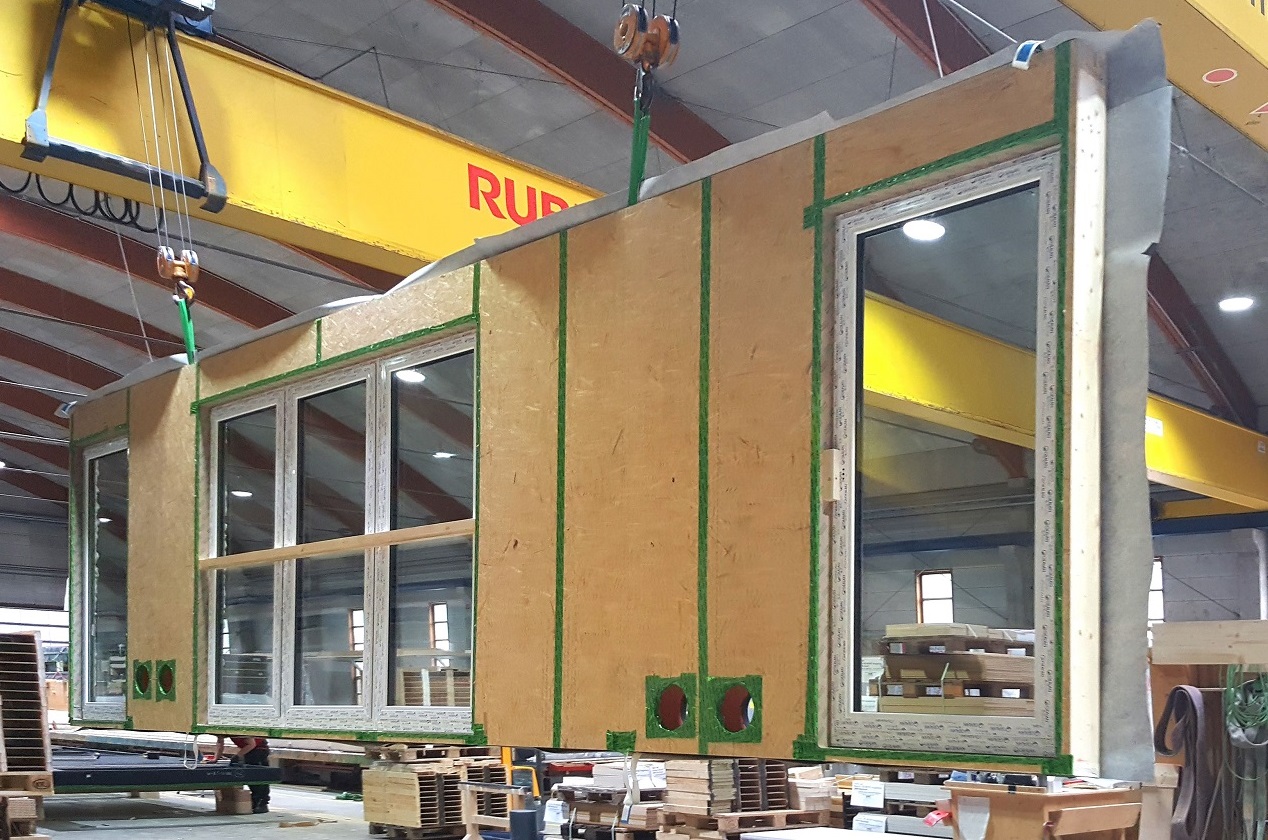Modular and industrialised solutions for building renovation

The building sector, when including both construction and operation, is responsible for a significant share of resources and energy consumption and CO2 emissions worldwide. The 2020 Building Global Status Report for Buildings and Construction speaks about global shares of 35% and 38% of the final energy and the emissions, respectively, for the building sector in 2019. Around 35% of the EU’s buildings are over 50 years old, and by improving their energy efficiency, the total EU energy consumption could be reduced by 5-6% and CO2 emissions lowered by about 5%.
[…] One of the options to accelerate the renovation rate looks at developing a deep retrofit approach based on modular and industrialised solutions. In this context, the use of a prefabricated multifunctional façade represents a potentially convenient solution to allow effective and multi-criteria renovation of existing buildings, addressing both the envelope and the building systems, as well as structural rehabilitation. Prefabricated modular solutions guarantee quick installation of pre-optimised technological systems and very limited impact on building occupants.
[…] The European Union has funded and continues to finance several research and innovation projects to tackle the immense issue of energy inefficiency in the building sector, by exploiting the modular and industrialised approach. After around ten years of projects, the challenges now relate to boosting the market uptake of solutions, increasing the stakeholders’ s acceptance towards the creation of a smooth and robust value-chain, and exploiting the benefits of the modular-industrialised approach for the decarbonisation of the building stock, taking into consideration the whole life cycle. […] The Horizon 2020 INFINITE project aims to increase the market penetration of industrialised all-in building envelope kits for deep renovation, based on a robust businesscase, meeting the demand side requirements, and keeping the focus on final users and all the stakeholders in the value-chain. The INFINITE project builds such solutions upon the first generation of prefabricated envelope systems.
The first generation of industrialised prefabricated façade approaches (identifiable within period 2014-2019) focused on solving technical problems, under an integral approach, they poorly managed to increase the wished industrial large updake, mainly because due to a lack of support tools for the industrialised retrofit, too expensive financial models, low stakeholders engagement, and so on. On the other hand, the second-generation approaches aim at a wide adoption with full optional integration based on affordable business plans for a deep market penetration, defining a new value-chain for such industrialised retrofit, and involving all the related stakeholders.
Moreover, the coupling of industrialization and digitalisation becomes the way to lower costs and support the process. Finally, the Life Cycle thinking is used as the new design paradigm thanks to the application of LCC and LCA methods during the development and the buildgin renovation design as well.
RELATED NEWS
Retrofitted building in Ravne na Koroškem opens to the public
Success at the opening of the renovated building on the 5th November 2025
Webinar on green prefabricated facades for retrofit
Green prefabricated facades in the webinar from the European Federation of Green Roof and Living Wall Associations
Renovation works advance in Slovenia
A look behind the scenes of the Slovenian demo